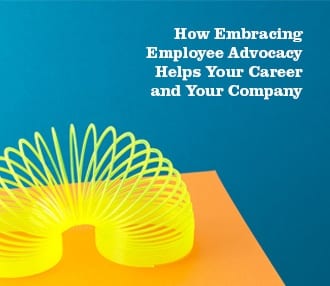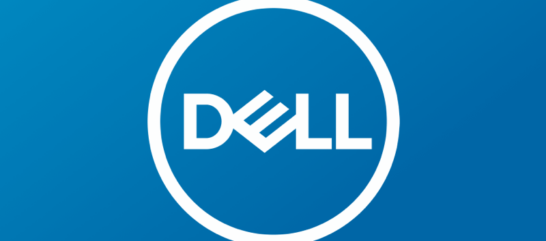Chess is a wonderful game of the mind. It’s simple to learn and complex to master. It’s a game that provides you with a team; each piece offering different value to the team. A pawn can only move one space per turn while the queen has free reign over the board. The contributions of each piece vary, but collectively, they can be used to create a very strong strategy that leads to victory.
The game of chess can parallel many different walks of life. HBO’s the Wire used chess to beautifully illustrate the positions within a crime organization. But chess can also represent your company’s organizational chart. The queen is the CEO, the king is the COO, and pawns are like specialists and managers.
Like a pawn, managers can move up within the organization and be promoted. But it’s a process, one that doesn’t happen overnight. Promotions come about as the result of seeing opportunities and taking advantage of them when they are presented.
Social media managers play an important role in an organization. They’re often the first point of contact with customers and potential customers. They manage a large part of the company’s outward facing persona.
But a social media manager isn’t a position you retire from after 20 years of service. It’s an important position that can lead to even bigger opportunities.
Career growth is something that needs to be thought out. You’re not going to stumble into a promotion. Employees that are simply competent at their job get stuck. They get surpassed by peers who can connect their work with the overall company strategy and please not just their boss, but their boss’s boss. It’s frustrating when you consistently overlooked for a position you feel you can do. This doesn’t have to be the case.
An employee advocacy platform has many benefits to an organization, but according to a Hinge Research Institute and Social Media Today survey, only 17 percent of organizations have a formal program in place. That’s a huge opportunity for someone like a social media manager who is looking to make themselves indispensable within their organization.
Let’s look at the reasons why you need to be the person to take control of employee advocacy at your organization and how to get your boss’s boss on board with the idea. In this blog post, we’ll walk you through the ways that employee advocacy can benefit your career. We’ve also put together a checklist to help you make a winning case for launching a program at your own company. Let’s get started.
Activate Your Team to Share and Create Content on Social Media 🚀
Give your company a competitive edge and your team a professional boost. Try EveryoneSocial's employee advocacy platform for FREE.
Why Employee Advocacy Benefits Your Career
Executives Need Internal Stakeholders for an Employee Advocacy Program
A successful employee advocacy program doesn’t just happen by accident. Organizations need everyone to buy in and that starts at the top. Executives at socially engaged companies are 52 percent more likely to be active creating, curating, and sharing content online. But it takes someone else to power the adoption and growth within the organization.
That’s an opportunity that can be seized by an ambitious, young employee.
Employee advocacy needs internal champions; highly motivated employees that can get other employees on board. These employees aren’t just enthusiastic, but they can position themselves as coaches within the organization.
When employees have questions and need counsel, they can turn to these internal champions for answers. A successful employee advocacy program will make executives take note of your work.
Grow Your Personal Brand
The opportunity to grow your personal brand can happen at any moment. One of those opportunities is through an employee advocacy program. By becoming an internal champion or coach, you can increase your visibility within the organization.
People outside your department will start to see the value you bring to the company.
Along with internal recognition, building a successful employee advocacy program can elevate your brand in the eyes of outside parties. Competitors will take notice when your efforts start to dominate social conversations within the industry and search engine results. New career paths can emerge with employee advocacy success.
Distinguish Yourself From Your Peers
Social media marketing is becoming a saturated field, with many people looking to get into it. A quick search on Google for “social media jobs” brings up 315 million results. With so many people jockeying for attention, employee advocacy is a perfect opportunity to break through the noise.
When evaluating talent, who do you think will stand out? The candidate that can effectively post on social media channels? Or the candidate that can rally an entire organization to be more productive with its collective social media efforts?
7 Facts to Sell Executives on Employee Advocacy Programs
With any new program or policy at a company, it requires a least one executive to buy-in to the concept. But part of an executive’s job is to say “no”, a lot. It’s just not feasible to implement every idea that’s presented. Which is why it’s imperative for you not to make a case for them to say yes, but rather make it impossible for them to say no.
Here are seven benefits of an employee advocacy program to get executives excited and onboard.
Socially Engaged Companies Generate More Leads
There are lots of great benefits to building an employee advocacy program within your company, but more leads is a good reason to start with. According to research by Altimeter Group, socially engaged employees are more inspired, connected, and increase sales opportunities for the business.
Altimeter discovered that socially engaged companies are 40 percent more likely to be perceived as more competitive. This leads to attracting high-quality talent, which in turn can lead to an increase in sales leads. In fact, socially engaged companies are 57 percent more likely to increase leads.
Disengaged Employees Lose Organizations Money
In an ideal world, every employee would love coming to work and be excited to be a part of the team. The reality is that there will always be a number of people who are more concerned with punching in and punching out every day.
The trick is to minimize the number of these employees. Disengaged employees typically are much more negative and thrive on being a part of the problem. Instead of finding solutions, they find other negative co-workers to reinforce their negative behavior.
This isn’t just unpleasant for office morale, it hurts the bottom line. According to Aon, a single disengaged employee can cost an organization on average of $10,000 of profit each year.
Employees Are Already Sharing On Your Behalf
An employee advocacy program doesn’t mean you have to invest in teaching your employees a new skillset. According to a Weber Shandwick study, your employees are most likely already active on social media and understand the power of engagement.
These employees aren’t just posting photos of their cats. The study discovered that 50 percent are posting messages about their employer, 39 percent are sharing positive praise about their employer, and 33 percent have made these posts without any prompts from the employer.
A formal employee advocacy program would help clarify messaging and make the postings even more effective. It’s a missed opportunity that doesn’t require a large investment in employee education.
Employees Have 10x the Social Following as the Brand
While your team is spending time and money building your online following across different social channels, employees are doing the same with their own social accounts. But instead of just one account, your employees are accumulating a collection of social followers that are typically 10 times the size of the company’s following.
The sheer size of your social following might be considered a vanity metric that many people could dismiss. Follow up this stat with the fact your employees’ social followers have a higher rate of engagement. Employee shared content accounts for 20 percent of your company’s overall engagement.
Socially Engaged Companies Have Increased Brand Visibility and Recognition
The payoff of employees having a greater social following and a higher rate of engagement for companies is that it can increase the company’s brand visibility and recognition. As we know, the first step to a sale is awareness.
Thanks to employee advocacy, companies enjoy greater inbound traffic, higher search engine rankings, and more content downloads. The Hinge Research Institute and Social Media Today’s survey found 79.1 percent and 65 percent of participants saw benefits with increased visibility and brand recognition. A third found that employee advocacy improved brand loyalty.
People Trust Friends, Family, and Employees
Edelman conducted a survey on global trust to find out who/what people trust. When it comes to content, friends and family were at the top of the list at 72 percent. In addition to friends and family, employees of a company were trusted 52 percent of the time. By increasing the number of employees who are actively posting about your company online, you’re expanding the number of people who believe and trust in your company, which will have a ripple effect of growth.
Employee Advocacy Improves Company Culture
Company culture is very important in the eyes of millennials, the largest generation in the workforce when they’re assessing professional opportunities. Millennials value qualities like open communication when it comes to company culture. Trust in your employer is a big selling point when it comes to company culture.
An employee advocacy program demonstrates trust between companies and their employees. They trust that you’re going to make the right decisions when it comes to posting on social media. Employees are being empowered, not restricted. This trust from socially engaged employees pays off in the long-run. Socially engaged employees are 27 percent more likely to be optimistic about their company’s future and 20 percent more likely to stay at the company.
Sometimes the biggest opportunities in life are sitting right in front of you. Employee advocacy is an opportunity for both organizations and individual marketing professionals. Now is the right time to take advantage of it and take your career and your company to the next level!















